
Open Book Exams – A Road Towards Concept-Based Curriculum
02 Mar, 2022
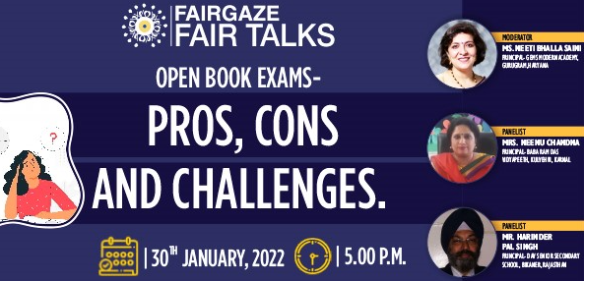
Summary: Fair Talks, a research-driven panel discussion by school education experts, elucidated the pros, cons, and challenges of open-book exams in school education. The experts analysed a survey conducted by FairGaze in which around over 69% believe that Open-book will positively impact the Indian education system and over 60% of respondents believe that textbooks and reference materials will be useful in open-book exams. Open-book exams, in which students are allowed to refer to textbooks and notes, are now being explored to encourage a focus on synthesis, analysis, and application, rather than memorization.
New Delhi, 2 March 2022: The recent episode of Fair Talks, a research-driven panel discussion by school education experts delved on Open-Book Exam being Good or Bad for students and school education. The experts analysed a survey conducted by FairGaze which included parents, students, and teachers. The results interestingly pointed out that over 69% of respondents believe that Open-book will positively impact the Indian education system although over 56% fear that students will take open-book exams for granted.
The survey also found that a majority of over 60% of respondents believe that textbooks and reference materials will be useful in open book exams while only 24% vouch for notes. While 21% feel that an open book will eliminate the need to prepare for the exam, over 64% disagree with such notions. Over 51% agree that open-book exams may discourage students to memorise even basic information. About 42% of the respondents believe that open-book exams will lend themselves to biases of teachers and invigilators and over 32% do not subscribe to this notion.
The panelists included Mrs. Neenu Chandna, Principal of Baba Ram Das Vidyapeeth, Mr. Harinder Pal Singh, Principal of DAV Senior Secondary School, and Ms. Neeti Bhalla Saini, Principal of GEMS Modern Academy, who was also the moderator of the session.
Mrs. Neenu Chandna used a clarifying analogy and stated that the primary factor of choosing the open book exam system is not the students but the curriculum. She said that an open book is suitable for the system where we have interdisciplinary and various aspects of the curriculum. She also pointed out that if students are allowed to use the open internet, then they should be provided with authentic e-resources by the school as the internet is full of information that is not authenticated.
Ms. Neeti Bhalla Saini stressed that the open book exam should have a concept-based curriculum or an understanding-based curriculum that will help us design a better examination pattern for the open book exam. She added that for students who are not good at cramming, the open book exam system may help them and support them better. This system will promote more understanding and conceptual learning.
Mr. Harinder Pal Singh suggested that through open-book exams students reading skills and their ability to think spontaneously increase. He added that to implement an open-book exam system in school the teachers should also have to upgrade themselves and go through teacher training which a big challenge is. He suggested that to implement this system the curriculum and teaching methods should be upgraded.
Ms. Neeti Bhalla Saini concluded by saying, “There are two main challenges that the teacher should have to undergo thorough training and it will be difficult to evaluate the exam paper due to different perspectives of students but change helps us evolve. This system will help in making the curriculum more concept-driven than content-driven”.
FairGaze is the leading school media and an engagement ecosystem for holistic development, which works with various stakeholders and policymakers, including organisers of premium events associated with the education industry. FairGaze engages with over 350,000 students from over 13,000 schools across India. FairGaze works with schools to help manage their newsletter, conduct holistic development programs, SDG activities, MUNs, promote the sports and cultural functions of the schools, and recognise the achievements of the students.
CONTACT INFORMATION
Contact PersonMs. Bhavna Sharma
OrganizationFairGaze Skills Pvt. Ltd.
Phone+91 9717023141
Emailbhavna@fairgaze.com
Related Video
Related PR
-
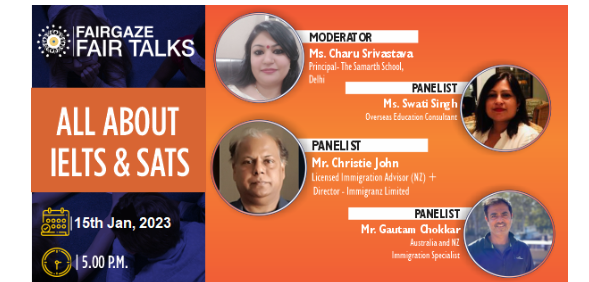 All About IELTS and SAT - FairTalks
All About IELTS and SAT - FairTalks
-
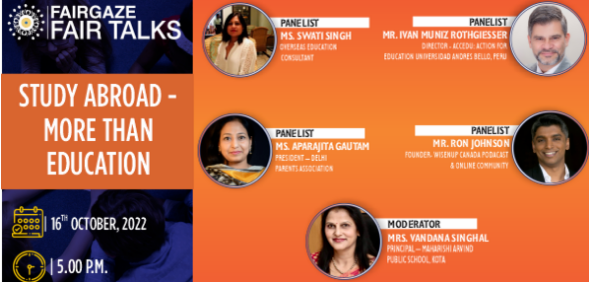 Studying Abroad More Than Education - FairTalks
Studying Abroad More Than Education - FairTalks
-
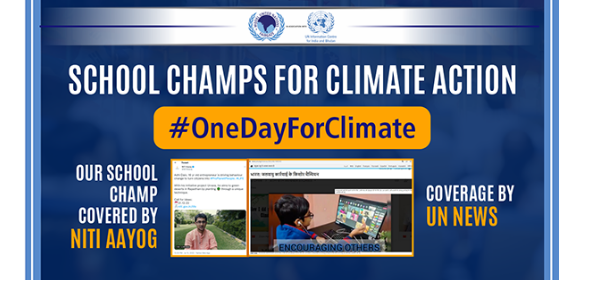 Climate Campaign by FairGaze Lauded by UN News, Niti Aayog
Climate Campaign by FairGaze Lauded by UN News, Niti Aayog
-
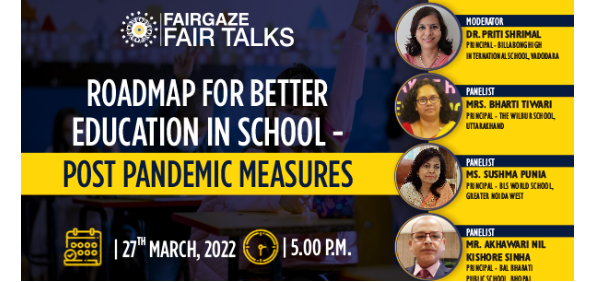 Post Pandemic Measures Needed To Recoup Learning Setback
Post Pandemic Measures Needed To Recoup Learning Setback
-
 Open Book Exams – A Road Towards Concept-Based Curriculum
Open Book Exams – A Road Towards Concept-Based Curriculum
-
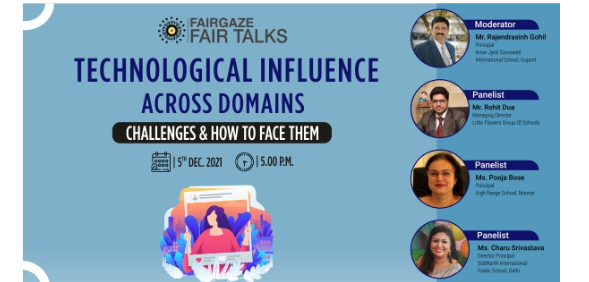 Lack of Training - A Challenge to Technology Use by Students
Lack of Training - A Challenge to Technology Use by Students
-
 Campaign for Climate Action Launched by FairGaze, UNIC
Campaign for Climate Action Launched by FairGaze, UNIC
-
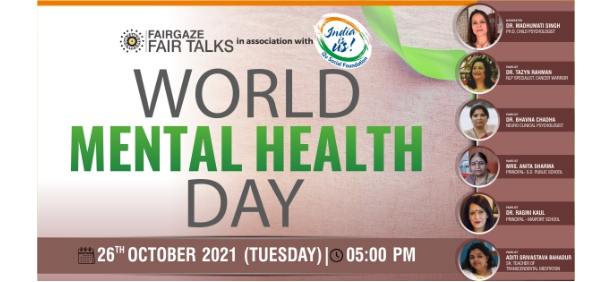 World Mental Health Day Campaign Engages 5,000+ Students
World Mental Health Day Campaign Engages 5,000+ Students
-
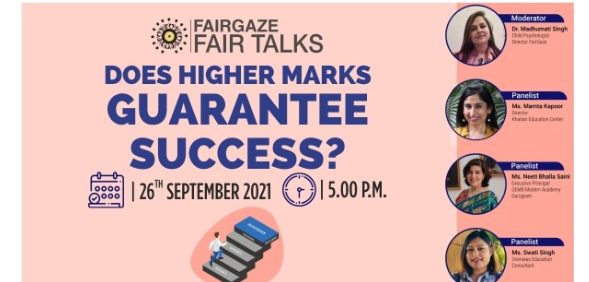 Do Marks Matter in Successful Future of Students?
Do Marks Matter in Successful Future of Students?
-
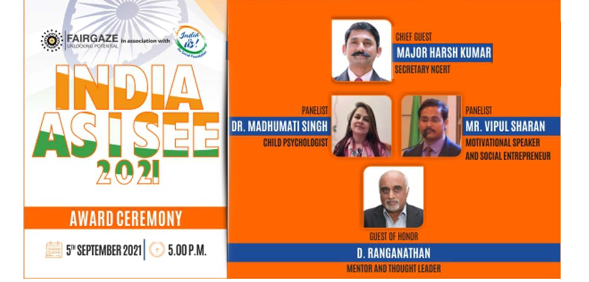 FairGaze App Launched during 'India As I See' Award Ceremony
FairGaze App Launched during 'India As I See' Award Ceremony

